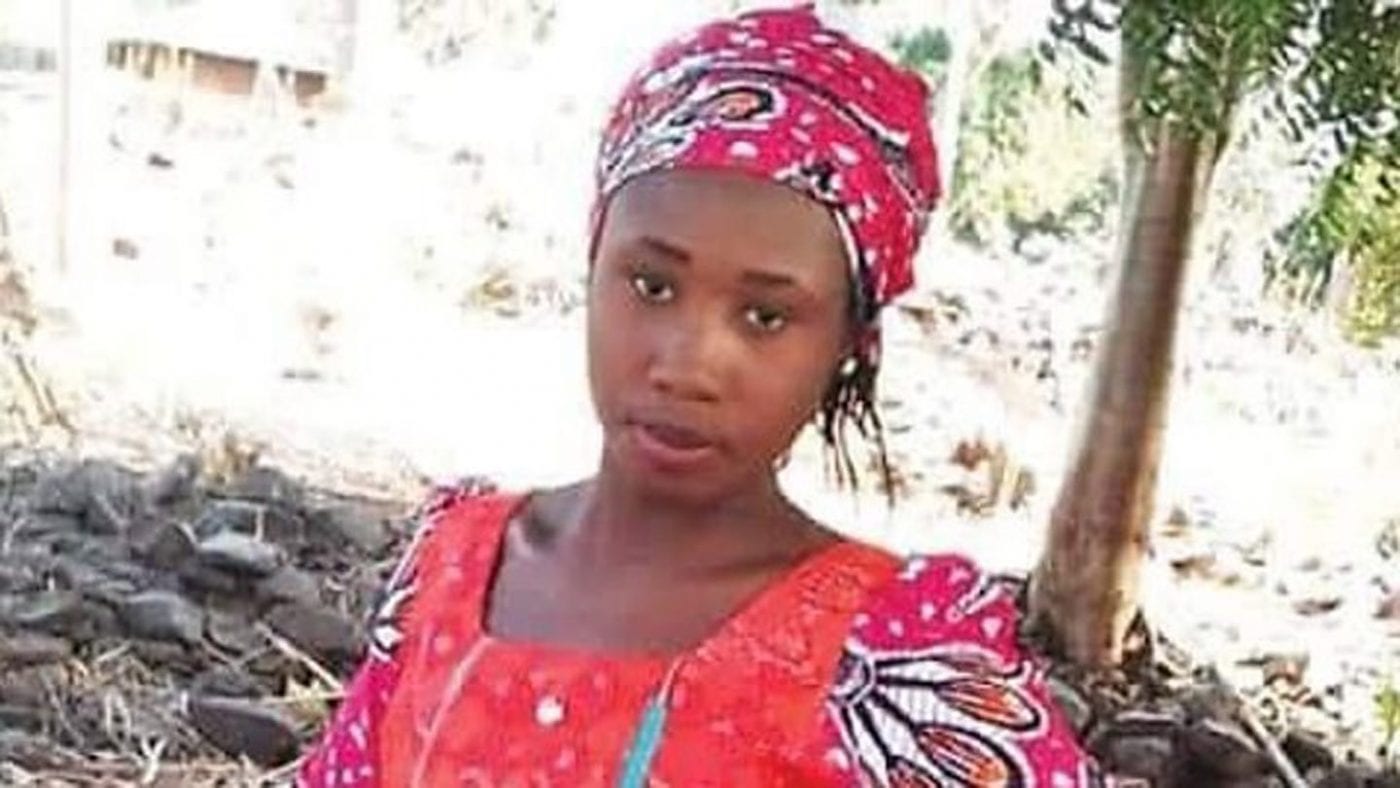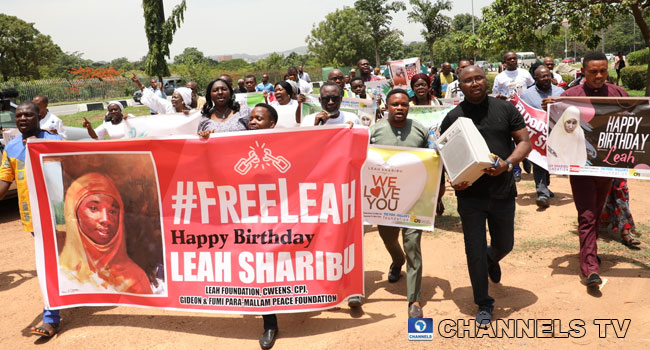By Martins Oloja
I had planned to write a tribute on one of the most remarkable icons of journalism and good governance, a unique reference point in execution – that discipline of getting things done, whose eighth-day Fidau prayer was marked in Lagos on Friday 19 February with closure of all markets and shops, Alhaji Lateef Kayode Jakande (LKJ). I had wanted to conclude the piece on the iconic LKJ with a suggestion of a fitting tribute our president Muhammadu Buhari could pay to the former Lagos State Governor of Significance whose good thinking on a Metroline project would have solved the most ticklish challenge of today’s Lagos: gridlock. I had thought of how our president could have removed the reproach of the way he angrily stopped Air Commodore Gbolahan Mudasiru, the then Military Governor of Lagos State (1984-1986) from executing the LKJ transportation project in 1984.
The indelible report of the stoppage has continued to crop up in public discourse on Lagos intractable gridlock as a blight on the credentials of our president. I had thought that a suggestion to the president to write a letter of commitment to support Lagos State Government to resuscitate the LKJ’s Metroline Project at this time should have been enough to remove that reproach from Buhari’s profile. Yes his portrait, which has been somewhat tainted with a recent report that the same Buhari who stopped the LKJ’s Metroline Project in 1984 was in Lagos in March 2018 to commission a meretricious Bus Terminal.
I had also planned to write on the parlous state of the Kagara school in Niger state where those children were abducted. Reason: I believe that the Niger state government should be enrolled in a ‘Hall of Shame’ for the sorry state of the 52-year-old school that the world has seen on television. I also wanted to deconstruct my professional colleague, Ms Kadaria Ahmed’s tirade on the media the other day. Her commentary has raised a lot of questions about journalism practice in the country.
However, she too left a lot of lacunae in her curious article. But my spirit in the end led me to step aside from all the aforementioned issues so that I can raise more questions about our ‘goddess of resistance’, Leah Sharibu who will mark her fourth birthday in captivity on May 14, 2021. The oracle says I should not wait until the next birthday when again we will read copiously from the book of lamentation on Leah Sharibu and then forget as usual the morning after.
This is a time to ask more questions even if the answers will once again ‘blow in the wind’ as Bob Dylon and Tom Petty would claim. As it is increasingly becoming ‘curiouser and curiouser’ as Alice cried in ‘Adventures in Wonderland’ every day that kidnap of school children is now a thriving enterprise to the masterminds who are artfully attributing the deals from Chibok through Dapchi to Kankara and now Kagara to unknown bandits, let us remind the authorities that there are still 112 Chibok girls since 2014 and there is still a Leah Sharibu since February 19, 2018.
While we leave the dealers who call themselves leaders to their conscience on the blood money they raise from kidnap of our children from schools, let’s us remind the authorities from the military, intelligence and security communities to the presidency that unless they also work hard too to negotiate the release of Leah Sharibu, they will not be able to talk about peaceful resolution of conflicts that have afflicted this administration. How many articles will the print and digital media publish before the authorities in Nigeria will know that celebration of the release of the 344 boys from Kankara school in Katsina in December 2020 is tainted without the release of Citizen Leah Sharibu?
How many dangerous prayer points will Christian groups in Nigeria raise before the authorities in Nigeria will realise that their hypocrisy, inertia and complacency about the plight of the families of Citizen Leah and the remaining 112 Chibok girls will continue to remind Christians in the country that the Nigerian state is indeed discriminating against them? How many birthdays does Leah need to mark in captivity before our commander-in-chief would realise that each day the Christian school girl spends in the terrorists’ den diminishes his stature as the one elected to chiefly command the security and defence forces for welfare and security of the citizens? How many contextual questions do opinion columnists need to ask about our leader’s integrity over Citizen Leah before he can recall the grave implications of a pledge in his inaugural speech on May 29, 2015 that: ‘I belong to nobody…’?
How many times do we need to tell the powerful people in Abuja that failure to negotiate and secure freedom for Leah is an albatross on the neck of our leader and what he stands for? When will the president’s men and women realise that any call for promotion of national interest above sectional interest appears most irrelevant at this time?

Let’s stop interrogating why opinion writers in the media ask questions to put people in power on their toes. We do this so that our leaders can act in public interest. There are too many distractions these days from people who are busy serving the gods of their bellies. This piece is to remind the authorities in Abuja today that the nation is still waiting for freedom for Citizen Leah Sharibu, the only Dapchi schoolgirl and Christian who is still being held in captivity because of her faith. Some aid and development workers had raised concern about her safety several times but the federal government said all was well with her and they were continuing with negotiation to set her free.
Some decent sources have conformed that she is alive and has in fact given birth in her sorrowful state. It is expedient to remind the president that people’s anxiety is beginning to turn to fear of the unknown as Alan Paton states in his classic ‘Cry, the beloved country’. And the implication is that when hope is deferred, as the ancient word notes, it makes the heart sick, but a longing fulfilled is a tree of life.
Look at this contrast that can define rampaging hypocrisy: While Zainab Aliyu, a Muslim girl who was arrested and detained in Saudi Arabia for alleged drug trafficking and whose release was secured through the intervention of the federal government, arrived in the country the other time, families and well-wishers were marking the 16th birthday of Leah Sharibu (as a captive) with several activities in Abuja, Jos and Lagos. As this has been noted several times too, this is not a good contrasting story in nation building at this time.
That is why we should continue to appeal to our leader to please use the doggedness with which he handled the case of Zainab Aliyu’s release for Leah Sharibu. This is one of the ways, Nigeria’s leader can show Nigerian citizens that he is a father to all, yes a good father who values human lives and can go to any length to save them.
It is in the main, not a good story that till date, Leah Sharibu, The Guardian’s 2018 ‘‘Person of the Year,’’ is still in the hands of her abductors who made the renunciation of her faith a precondition, which she declined for her release.

The origin: While 104 of her colleagues were released on March 21, 2018, five of the hapless girls died in captivity. Although, the Minister of Information and Culture, Alhaji Lai Mohammed announced then that the 104 girls’ release was unconditional, the refusal of the terrorists group to release Leah at the same time because she refused to convert to Islam, questions this view and buttresses some perception that the federal government’s negotiations through a back-channel led to the release of the other girls. So, it is indeed inexcusable that the federal government has not been able to negotiate Leah’s release since February 2018.
Can we also forget that this Christian girl, Leah during the third quarter of 2018, in a clear audio message begged President Buhari to come to her rescue. However, the government said the clip would be verified to be sure that it was Leah’s voice. There has been no update on the authenticity of the voice since. It will be recalled too that on October 3, 2018, President Buhari consoled Leah’s biological family and assured her parents that the federal government would do its utmost for the safety and security of Leah.
The president was quoted as telling Mrs Rebecca Sharibu: “I convey my emotion, the strong commitment of my administration and the solidarity of all Nigerians to you and your family as we will do our best to bring your daughter home in peace and safety.” Despite the president’s assurance to the mother of Leah, there has been no update on the plight of the unlucky girl. This ugly reality should therefore be seen for what it is: a monumental embarrassment that has deeply affected people’s definition of their citizenship in this complex federation. As it has been noted several times, Nigeria’s leader should note again that the story of Leah Sharibu’s capture and her continued detention by Boko Haram insurgents as a result of her refusal to renounce her faith is legendary. That defiance echoes a bright message of love, selflessness, courage and hope to our nation. The Leah ‘The Guardian’ calls, ‘‘a goddess of resistance’’ to terror, is now the number one soldier on the frontline in defence of Nigeria’s now fragile unity, peace and progress. She is a true heroine.
Finally, the word of the president on Leah and the remaining Chibok girls should be his bond! The remaining 112 Chibok girls and Leah Sharibu are still in Boko Haram’s captivity. They remain our missing daughters. To the parents, friends and relatives of Leah, who have been in agony and waiting for the return of their child, we appeal that they should continue to pray and keep hope alive. So, as Nigeria’s leader is working hard for the release of Kagara school children, he should be reminded that Citizen Leah is still missing and her parents and indeed Christians in the country are still agonising about her fate in the camps of the wicked ones. Nigeria can hit the world headlines for a significant reason if citizen Leah is released before May 14 this year when she will mark her fourth birthday in the camp of wicked scoundrels.
• Oloja is a columnist and former Editor of The Guardian.